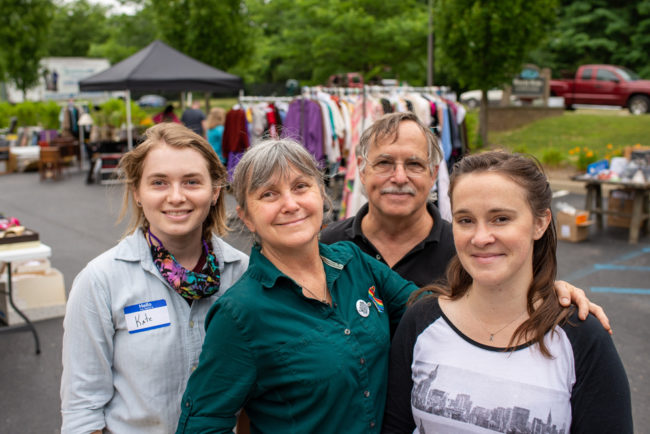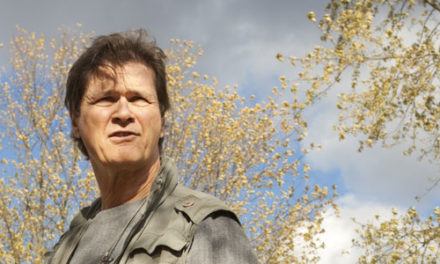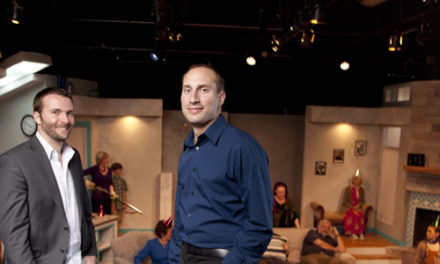
by TRACY ZOLLINGER TURNER
When Cardinal Stage sold its South Walnut Street building in the spring, moving into a much smaller space shared with the Bloomington Academy of Film & Theatre, it was a complicated prospect. Administrative offices and a prop garage needed to be emptied rapidly, but many of the places that would ordinarily take donated and recyclable materials remained shuttered due to pandemic restrictions.
Melinda Seader—who Cardinal Managing Director Gabe Gloden calls “the reuse, repurpose, and recycle queen”—swung into action. “She didn’t want to see anything in Cardinal’s warehouse go to waste if it could do someone else in the community good during a really hard time,” says Gloden.
Seader first got involved with Cardinal in 2007 when her daughters appeared in the company’s inaugural production of Oliver! as children. She’s since helped with prop-building, marketing, and an overhaul of the company’s prop collection in 2017.
During the move, she and her daughters Aubrey, 27, and Kate, 24, pulled together in “a team effort” to find new homes for all of the items Cardinal needed to shed. Gently used mattresses, box springs, bedding, and other household items were given to families through Hotels for the Homeless. Fabric and a clothing press were donated to the local mask-making drive at the Banneker Community Center. Fun, smaller costumes and “four carloads of toys, books, office and art supplies,” says Seader, were delivered to Teachers Warehouse. They saved garden-related items for Mother Hubbard’s Cupboard, upholstery fabric for Opportunity House Thrift Store, and a few things for City of Bloomington Parks and Recreation nature education programs.
Seader’s passion for sustainability has been lifelong. She majored in environmental studies as an undergraduate at California State University in Sacramento in the 1980s. After relocating to Bloomington in 1990 with her husband, Don (so he could attend graduate school at Indiana University), she ran the recycling processing center for the Monroe County Solid Waste District, at the time the largest public processing center in the state of Indiana. She started the center’s Materials for the Arts Exchange and created a grant-funded publication that listed local alternatives for resale, reuse, and repair. “This is the part of my brain that lets me find new homes for unwanted items,” she says.
Seader and her husband opened World Wide Automotive Service (WWAS) in 1995, which embraces green auto-repair practices. Everything from Cardinal was stored at WWAS that couldn’t be given away until Habitat ReStore began accepting donations again. “The pickup was almost a full box truck load,” says Seader. Remaining retired theater items were sold at the Bloomington Theatre Yard Sale in June—held at WWAS—that benefitted several local theater organizations. While the pandemic may have called her and her family to action, she says helping the community “is the right thing to do, anytime.”










